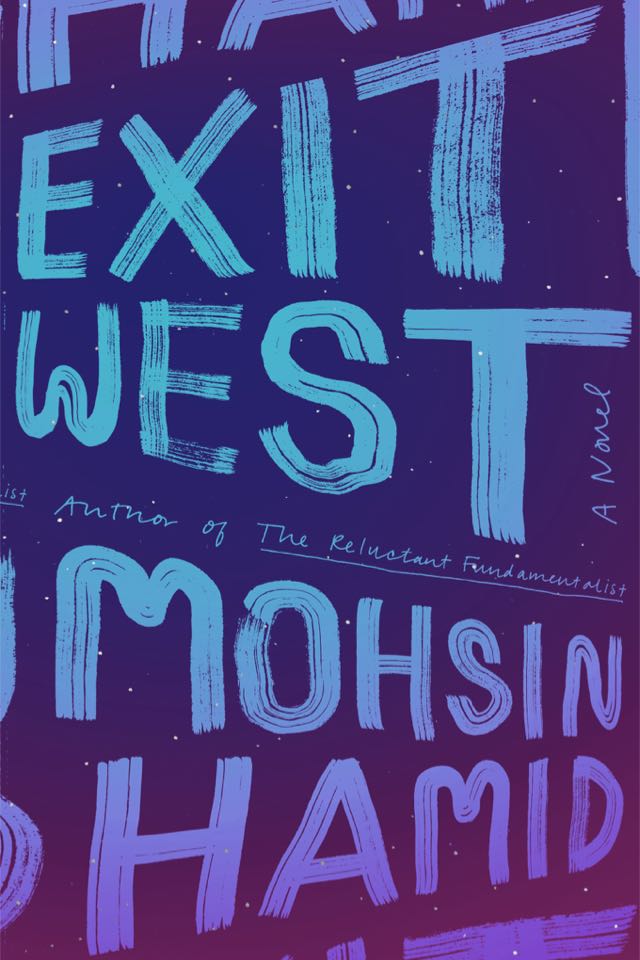Exit West
— Alexandra d’Abbadie
It was about the essential, about being human.
I wouldn’t be surprised if Exit West wins the Booker prize this year. Mohsin Hamid’s novel is well paced, lovingly written—and perhaps most importantly, a triumphant product of its time: of wars, refugees, borders, and violent nationalism. A novel of the human experience—crucially, of course, from the Other side.

Hamid enforces a kind of empathetic moral imperative: you won’t find any clever postmodern techniques here, none of Rushdie-esque flamboyance. We are immediately pulled into the lives of Nadia and Saeed, two young people about to fall in love in an unnamed country at war. Everything has been crafted for the reader to feel for them, identify with them: they could be young adults in any other country, enjoying their little drugs where they find them, working typical, mundane office jobs. Their lives fall apart and you’re horrified, rooting for them. You understand that this could happen to you. You’ll put this book down, switch on the BBC, and see Nadia and Saeeds arriving in Mykonos if they’re lucky enough. This may not be the point of the novel, but it certainly helps in cultivating empathy, and subsequently (hopefully) action.
Exit West brilliantly portrays the many violences of a country in upheaval, from the bombs to crowd molestations, the way people are forced to negotiate their personal and public space. Take, for instance, the way one must look at benign windows in wartime:
A window was the border through which death was possibly most likely to come […] any spot indoors with a view of the outside was a spot potentially in the crossfire’.
It also beautifully—excruciatingly—maps out the way people fight for a semblance of normality in these circumstances. There’s this moment later in the novel, where, after weeks without any access to clean clothes or showering facilities, Nadia finds herself in an opulent mansion in London. She luxuriates in the bathroom, and after her shower washes her clothes: what she was doing […] was for her not about frivolity, it was about the essential, about being human, living as a human being, reminding oneself of what one was
.
This kind of cinematic lingering, paired with Hamid’s meticulously-chosen details, are testament to the author’s masterful technique: his sentences undulate slowly, taking their time in unveiling the moment at hand. There’s quite a meta line near the end of the book which perfectly encapsulates his style: his voice uncoiling like a slow, languid exhalation of marijuana-scented smoke
. His rather slow tempo acts almost as innuendo: the act of remembrance countering everything that is lost in one blow, in one bomb. So much can lie in a mole, in a lemon tree, in an apartment.
His employ of magical realism is very effective (and affective) precisely because, I think, the surreal happens in truly extra-ordinary real-life. In the midst of such horror, there’s a (literal), almost Lewisian symbol of hope: the dark closet doorways, the heart of darkness
. It’s an apt metaphor for globalisation—at least, for those who can afford it. You can’t help thinking of those other black shapes, the dark rubber boats that kill as well as convey. The closets are, in this respect, more a utopian imagining then dystopian. This quasi-utopianism also informs Hamid’s blueprint of a possible future, one in which cities and towns are radically redesigned to make way for the influx of immigrants and refugees. I’m definitely not the only one who thinks that all of London’s ghost mansions should be converted into homes for those who have none, and it’s some sort of vindication to see this happen here.